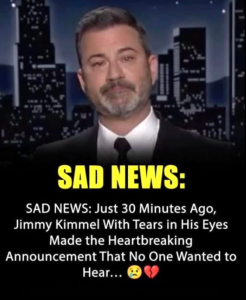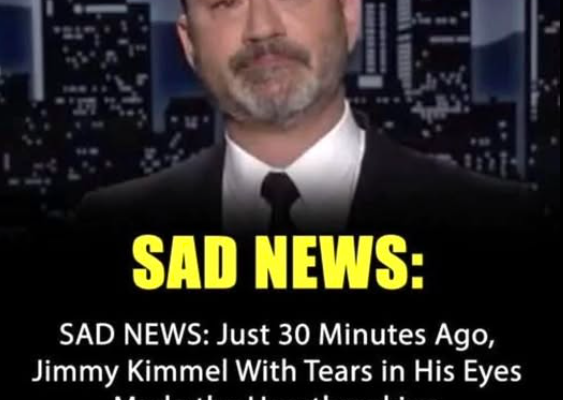Jimmy Kimmel Faces Federal Scrutiny Over Charlie Kirk Remarks: A Collision of Comedy, Politics, and Regulation
In a stunning escalation of media controversy, late-night host Jimmy Kimmel may face a federal investigation following remarks he made about the fatal shooting of conservative activist Charlie Kirk. The fallout has triggered a wave of affiliate suspensions, advertiser backlash, and calls for accountability from the highest levels of government—raising profound questions about the boundaries of satire, the role of broadcasters, and the politicization of tragedy.
The Flashpoint: Kimmel’s Monologue
During his Monday night monologue on Jimmy Kimmel Live, the comedian addressed the September 10 assassination of Charlie Kirk, founder of Turning Point USA, who was shot while speaking at Utah Valley University. The alleged shooter, Tyler Robinson, 22, was later arrested and charged with aggravated murder and other felonies. Prosecutors have described Robinson as holding far-left political views.
Kimmel’s comments, however, suggested otherwise. “We hit some new lows over the weekend,” he said, “with the MAGA gang desperately trying to characterize this kid who murdered Charlie Kirk as anything other than one of them, and doing everything they can to score political points from it.” The statement ignited a firestorm, with critics accusing Kimmel of misleading the public and politicizing a tragedy.
FCC Chairman Brendan Carr Responds
Federal Communications Commission Chairman Brendan Carr quickly weighed in, calling Kimmel’s remarks “some of the sickest conduct possible.” In an interview with conservative podcaster Benny Johnson, Carr said he was considering a formal investigation into Kimmel and ABC, the network that airs his show. “There are avenues here for the FCC,” Carr stated, “and we could ultimately be called to be a judge on some of these claims”.
Carr floated several potential remedies, including suspension of the host and even license revocation for ABC affiliates that continue airing content deemed misleading or politically inflammatory. He emphasized that broadcasters have a legal obligation to serve the public interest and avoid patterns of distortion in news or commentary.
ABC and Affiliate Fallout
The backlash was swift. Nexstar Media Group, which operates 32 ABC affiliates, announced it would preempt Jimmy Kimmel Live indefinitely. Sinclair Broadcast Group followed suit, suspending the show across its network of stations and demanding a formal apology from Kimmel, as well as a donation to the Kirk family and Turning Point USA.
ABC, owned by Walt Disney Company, responded by suspending the show “indefinitely,” though insiders suggest the network hopes to bring it back within days. Kimmel, reportedly furious over the decision, has refused to apologize, telling executives he would not “kowtow” to political pressure.
Legal and Regulatory Implications
The FCC’s involvement raises complex legal questions. While the commission does not regulate content in the same way it did during the Fairness Doctrine era, it retains authority over broadcast licenses and can investigate patterns of distortion or violations of public interest standards.
Carr’s comments suggest that Kimmel’s monologue may be viewed as a deliberate attempt to mislead viewers about a politically charged event. “This was at best an unconfirmed rumor,” Carr said, “and at worst a malicious lie broadcast to millions”.
If the FCC proceeds with an investigation, it could examine whether ABC violated its license obligations by airing content that misrepresented facts about a high-profile criminal case. Such a probe would be unprecedented in recent memory and could have chilling effects on political satire and commentary.
The Role of Comedy in Political Discourse
The controversy also reignites a long-standing debate about the role of comedians in shaping political narratives. Kimmel, like other late-night hosts, often blends humor with pointed political critique. But critics argue that such commentary—especially when it touches on real-world tragedies—must be held to higher standards of accuracy.
“Political comedians and journalists have similar responsibilities,” said Clare Blackwood, a writer for the satirical publication The Beaverton. “But those responsibilities are approached from very different perspectives”.
Supporters of Kimmel argue that his remarks were part of a broader critique of political spin and should be protected as free speech. Detractors contend that falsely attributing political motives to a murder suspect crosses a line, especially when the facts contradict the claim.
Trump’s Influence and Broader Media Trends
Carr’s response also reflects a broader shift in media oversight under President Donald Trump, who has repeatedly criticized legacy media and pushed for greater accountability. Carr cited Trump’s efforts to defund NPR and PBS, and pointed to the recent cancellation of Stephen Colbert’s show and the departure of MSNBC’s Joy Reid as signs of changing tides.
“This is a very serious issue for Disney,” Carr said. “We can do this the easy way or the hard way. But the individual licensed stations need to step up and say this garbage doesn’t serve the needs of our communities”.
The FCC chairman’s remarks suggest a growing willingness to challenge major networks over perceived bias, and may embolden other regulators or lawmakers to pursue similar actions.
Cultural and Political Ramifications
The potential federal probe into Kimmel’s comments marks a watershed moment in the intersection of media, politics, and regulation. It underscores the fragility of public trust in journalism and entertainment, and the risks of blurring the lines between satire and misinformation.
For ABC and Disney, the controversy poses reputational and financial risks. Advertisers have reportedly expressed concern, and affiliate groups are demanding greater oversight of network content. For Kimmel, the fallout could reshape his career and legacy.
More broadly, the incident reflects the deep polarization of American society, where even a late-night joke can become a flashpoint for national debate. As regulators weigh their next steps, the case may set a precedent for how political speech is governed in the age of streaming, social media, and hyper-partisan news.


